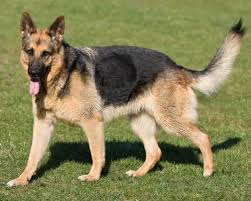What causes a dog to get parvo? Parvo in puppies is caused by the canine parvovirus. This virus is highly contagious and spreads through direct contact with an infected dog or by indirect contact with a contaminated object. Your puppy is exposed to the parvovirus every time he sniffs, licks, or consumes infected feces.
Can puppies get parvo from grass? Parvo can be found in almost any environment. It is transmitted when a susceptible dog comes in contact with the virus. This includes contact with the feces of an infected dog, or objects that contain the virus (shoes, clothes, bedding, bowls, grass, carpets, floors, etc).
How likely is a puppy to get parvo? There’s a near-zero percent chance that your dog catches parvo if they’re not around unvaccinated dogs. Wait until your pup has had their first two shots before bringing them around any pets that may not be fully vaccinated.
Can a dog randomly get parvo? Transmission of parvovirus in a dog who never leaves home can be pretty straightforward. If your friend stopped by your home for a visit and just happened to bring her dog for a play session with your little guy, the virus could spread from the infected party to your pet, through the feet and coat.
What causes a dog to get parvo? – Additional Questions
What are the first signs of parvo?
Some of the signs of parvovirus include lethargy; loss of appetite; abdominal pain and bloating; fever or low body temperature (hypothermia); vomiting; and severe, often bloody, diarrhea. Persistent vomiting and diarrhea can cause rapid dehydration, and damage to the intestines and immune system can cause septic shock.
Can vaccinated dogs still get parvo?
Parvo is a preventable disease, but even vaccinated dogs are not 100% protected from the virus. Vaccines for the parvovirus are recommended for all puppies and are usually given in a series of three shots when the pup is between 6-to-8 weeks old, again at 10-to-12 weeks, and at 14-to-16 weeks.
Can a 2 year old dog get parvo if vaccinated?
It’s so serious, in fact, that preventative parvovirus vaccinations for dogs are recommended between the ages of 6 to 16 weeks. Because young dogs receive the most attention regarding the illness, pet owners may wonder, can my dog get parvovirus at any age? The answer to this important question is, yes they can.
Can a 1 year old dog get parvo?
Canine parvovirus (CPV) is a highly contagious viral disease of dogs that commonly causes acute gastrointestinal illness in puppies. The disease most often strikes in pups between 6 and 20 weeks old, but older animals are sometimes also affected.
How do you know a dog has parvo?
If your dog shows any of the following early signs of parvo, see your veterinarian immediately:
- Profuse, bloody diarrhea.
- Vomiting.
- Loss of appetite.
- Dehydration.
- Lethargy.
- Abdominal pain.
- Weakness.
- Collapse.
Can a dog carry parvo and not be sick?
Adult dogs may be infected carriers without showing any clinical signs. It can last a long time in the environment, perhaps as long as nine months or longer.
How can I protect my dog from parvo?
The best way to prevent parvo is early vaccination. Puppies and younger dogs are most at risk. Symptoms include severe diarrhoea, severe vomiting, lethargy, fever and weakness. Puppies need to be kept isolated from unsafe areas where dogs congregate (such as parks or kennels) until they’ve completed their vaccinations.
Can humans get parvo?
Humans cannot catch parvovirus from their dogs. However, it’s important to make sure you’re not spreading the virus from your dog to other environments or objects that could come into contact with another dog, as this can spread the infection.
Can a healthy dog spread parvo?
The virus is spread through traces of feces from infected dogs. Asymptomatic dogs that are infected but aren’t showing symptoms can spread Parvo, as well as dogs with symptoms, and those that have recently recovered from the condition.
What breed of dog is prone to parvo?
Certain breeds and types of dogs appear to have a higher risk of parvovirus infection or show more severe illness once infected. These include Rottweilers, Doberman Pinschers, Labrador Retrievers, German Shepherds, Bull Terrier breeds, and Alaskan sled dogs.
Where are dogs most likely to get parvo?
Parvovirus is found in any environment (lawns, homes, kennels, dog parks, etc.). It comes from infected dogs that excrete the virus in their vomit or feces. Parvovirus is very hardy outside its host, can survive winter conditions, and is resistant to common household cleaners.
How do I disinfect my yard from parvo?
Bleach is the most effective disinfectant to treat viruses like parvo in a yard. You can combine 1 part bleach with 30 parts water and apply it to any hard, even surfaces in which color changes aren’t important.
What kills parvo virus?
At least 10 minutes of contact time with the bleach solution is needed to kill the virus. Steam cleaning is also able to kill the virus. BLEACH COMPLETELY KILLS PARVOVIRUS.
How long does parvo live in your yard?
Extremely resilient, parvovirus can survive in the environment for up to nine years, including the ground and soil. It can also withstand most household cleaning products (bleach is an exception), heat, cold and humidity, all of which makes the spread of the virus is hard to control.
What kills parvo on carpet?
Use a carpet cleaner that contains any of these chemicals to kill parvo left on your carpet:
- Sodium hypochlorite.
- Chlorine dioxide.
- Accelerated hydrogen peroxide.
- Potassium peroxymonosulfate.
How long does parvovirus last?
How Long Does Parvo Last? What’s the Prognosis for a Dog With Parvo? Hospital stays generally last around five to seven days, but this varies depending on the severity of symptoms. The highest risk of death occurs around 24-72 hours after you see the symptoms of parvo in dogs.
Does parvo live on clothes?
Infection with parvovirus occurs when a puppy is exposed to contaminated feces or to an object, such as shoes or a sidewalk, which has been contaminated by feces. The virus can live on contaminated surfaces or clothing for up to 5-6 months. Parvovirus becomes widespread throughout the body in 3-4 days.




